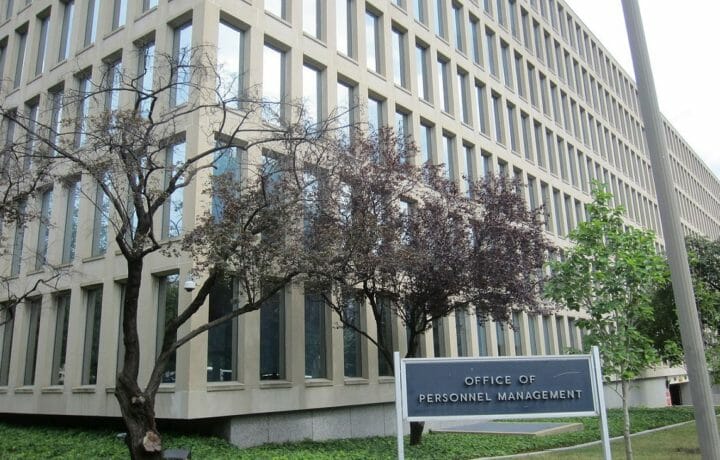In the midst of its transfer to the Department of Defense, the security clearance background investigations process and workforce is still moving forward with little change – that’s the word from Charles Phalen, Director of the National Background Investigations Bureau (NBIB). Currently housed under the Office of Personnel Management (OPM), the NBIB and its mission will soon officially be under the DoD umbrella. This switch has been in the works for over a year. However, the recent executive order to switch the security clearance mission was just signed April 24, and sets a deadline of June 24 for the Secretary of Defense and head of OPM to reach an agreement on how exactly the transfer will take place.
Phalen sat down with ClearanceJobs and other media outlets this afternoon to give an update on the security clearance process and what this transfer means for those involved.
What does this mean for NBIB employees and contractors?
NBIB will continue its work conducting investigations and managing the process until October 1, 2019. At that point, all NBIB employees will officially become employees of the DoD.
“Our absolute goal in this – us here at OPM, at Defense Security Service, and everybody else who cares about this – is to avoid speed bumps,” said Phalen, assuring current federal and contractor personnel, as well as those with pending investigations. “On October 2, when you wake up, all you can tell is that we’ll have a different T-shirt on. And we’re not even sure we’re gonna do that.”
Though many details – such as where offices will be located, the logistics of transferring paychecks, etc.- are still in the process, Phalen and his team are working to avoid any disruptions to employees’ mission – and their paychecks.
For the companies that hold contracts with NBIB, the contracts should seamlessly transfer over to DoD without rebidding (before the contract ends). Phalen was quick to point out how the loss of contracts in the past were primary contributors to the backlog – a mistake he’s not quick to repeat.
“What got us in trouble in 2014 was losing that investigative capacity. Right now our plan is – legally our plan is – to transfer the contracts from OPM and NBIB to DOD under the FAR [Federal Acquisition Regulation]. And there are ways to do that under the FAR. And it would simply be that the contract today is under OPM or NBIB and tomorrow it’s a DoD contract.”
field work will continue to be an important part of the background investigations process
Phalen emphasized that a big key to reducing the 725,000 case backlog in last April to a current inventory of 459,000 has been an increase in NBIB field staff and contractors. But Phalen and other officials have frequently explained that reducing field work is key to breaking up the rest of the backlog and speeding up processing times.
“The thing that’s taken up so much time is the field work – and that’s the longest pole in the tent in most cases…What we have seen, more importantly, is over time people are getting more mature in the jobs; a lot of these people were new to the jobs as they were first hired. And as they are getting better skilled, we are finding better ways to use them more efficiently and give them the better technology they need, and better strategies.”
When asked directly if this transfer to DoD and the progress on the backlog would cause layoffs to current field staff, Phalen emphasized the continued need for a large population of skilled field staff as leaders overhaul the security clearance process. As continuous evaluation progresses, there will be a steady need for staff who can go out and have those face to face conversations and address those issues as they come up.
“Some of the things we’re going to do are going to reduce the things that are not very productive for investigators and allow them to focus on those things which are really important, which is to have that face-to-face discussion…More interestingly, continuous vetting is going to find more problems than what we see today,” explained Phalen.
“So what you think of today as a periodic reinvestigation- it’s actually going to be harder to do than just a periodic reinvestigation. We will need more face-to-face time, more focus…It’s hard to say but we don’t see any large scale loss or need to offload investigative capacity. I think we’re all confident that we’re going to need this capacity and maybe refocus them in other skills, but we’re going to need this level of effort.”
What does this mean for security clearance holders and applicants?
For clearance applicants, long wait times have unfortunately become a given. Phalen knows this.
“We aren’t where we need to be on that [timeliness]. We’re pretty open about that. I’m not very happy about that, but what I can tell you is that we are seeing…the median number [of processing times] move precipitously to the good, to the left. As much as 25% or 35% as far as timeliness – and sometimes more, in some cases. So that’s going in the right direction and I’m fairly comfortable that as we move to our steady state of 200,000, those numbers will move or be better than the numbers that we are supposed to be meeting, and that would be across the board for all of the case types that we do. I’m happy with where we’re going but I know we’re just not there yet.”
There’s still a lot of field work in places like Southern California (between San Diego and Los Angeles), Central Texas, and Orlando, which may cause delays. Interestingly, despite the immense amount of work coming from D.C., the backlog of field work is in pretty good shape, Phalen says. NBIB has been “hubbing” field resources in high-traffic areas in order to get the backlog down and process clearances more quickly.




